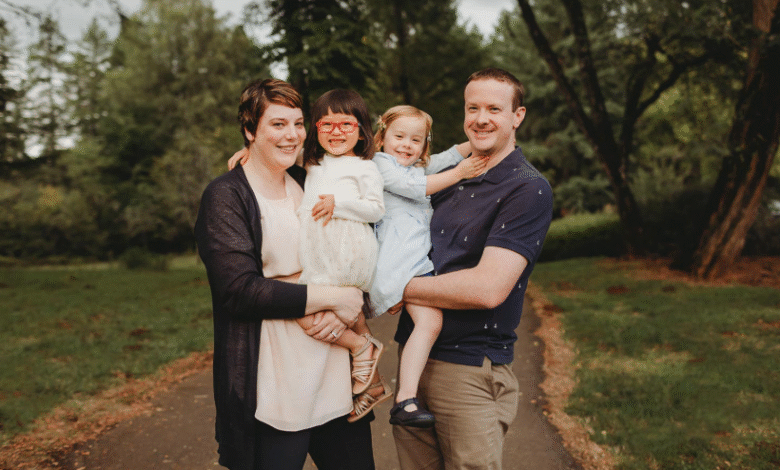How to Legally Adopt a Child in Tennessee

Adopting a child is a deeply personal and life-changing journey. Whether you’re a stepparent, a relative caregiver, or a hopeful parent looking to expand your family, the process can feel overwhelming without the right support. Understanding Tennessee’s adoption laws is crucial, and working with an experienced attorney can make all the difference. Legal professionals like Lisa Collins Werner, based in Knoxville, TN, provide the guidance families need to navigate this emotional and complex path with clarity and confidence.
This article walks you through the adoption process in Tennessee, including eligibility, types of adoption, necessary steps, and how legal representation can ensure a smooth transition for everyone involved.
Why Adoption Law Matters
Adoption is more than an act of love — it’s a legal transformation. It transfers all parental rights and responsibilities from the biological parent(s) to the adoptive parent(s). Because of its permanent and life-altering nature, Tennessee courts follow strict legal procedures to ensure the best interest of the child.
Key areas covered by adoption law include:
- Termination of parental rights
- Court hearings and background checks
- Interstate or international legal compliance
- Legal finalization of parental roles
See also: Tips for Installing a Residential Elevator in Your Home
Types of Adoption in Tennessee
Tennessee law recognizes several forms of adoption. Each comes with its own procedures, requirements, and timelines.
1. Agency Adoption
This involves adopting a child through a licensed adoption agency, either public (like the Department of Children’s Services) or private. Agencies handle matching, background checks, counseling, and often offer post-placement support.
2. Private/Independent Adoption
In a private adoption, birth and adoptive parents work directly — often facilitated by an attorney. This route offers more control and faster timelines, especially when the birth mother and adoptive family are already in contact.
3. Stepparent Adoption
When a biological parent remarries, the stepparent may choose to adopt their partner’s child. This is one of the most common and streamlined forms of adoption in Tennessee, especially when the noncustodial biological parent has no ongoing involvement.
4. Relative/Kinship Adoption
Grandparents, aunts, uncles, or other relatives may legally adopt a child if the birth parents are unable to care for them. Courts often view kinship adoptions favorably because the child maintains a sense of continuity.
5. Foster Care Adoption
Children in Tennessee’s foster care system are eligible for adoption if parental rights have been terminated. This route may offer financial support and other resources for adoptive parents.
6. Adult Adoption
Surprisingly, Tennessee law also allows for the adoption of individuals over 18. This is often pursued for inheritance reasons, to formalize long-term parental relationships, or in stepfamily situations.
Who Can Adopt in Tennessee?
According to Tennessee law, to adopt a child, you must:
- Be at least 18 years old
- Be a resident of Tennessee for at least six months before filing (with some exceptions)
- Be financially stable and able to provide for a child
- Pass a criminal background check
- Complete any required training (particularly for foster-to-adopt situations)
Both single individuals and married couples are eligible. Tennessee does not require adoptive parents to own a home, be of a certain religion, or fall into a specific income bracket — but the best interest of the child remains the court’s top priority.
The Legal Adoption Process: Step-by-Step
While each adoption case is unique, here’s a general roadmap to expect in Tennessee:
1. Consultation with an Attorney
Before starting the legal process, meet with a family law attorney who specializes in adoption. They’ll help you understand your options and ensure you’re prepared.
2. Home Study (If Required)
In most adoptions — especially agency or foster care — a licensed social worker must conduct a home study to evaluate your readiness. It includes:
- Interviews
- Home inspection
- Background checks
- References
Stepparent and relative adoptions are often exempt from this step.
3. Filing a Petition for Adoption
This legal document is submitted to the local court and includes:
- Names and addresses of the adoptive parents
- Child’s current legal situation
- Consent forms (if available)
- Proof of completed home study (if applicable)
4. Consent and Termination of Parental Rights
Before a child can be adopted, the biological parents’ rights must be legally terminated. This can happen:
- Voluntarily, when the parent agrees to relinquish rights
- Involuntarily, if the court finds abandonment, abuse, or neglect
5. Court Hearings
You’ll attend at least one hearing where a judge will review your case, examine the evidence, and ask questions. If approved, the court will issue an adoption decree.
6. Finalization and Post-Adoption Services
Once finalized, the child’s birth certificate will be updated, and the new parent-child relationship becomes permanent. Some families choose to access post-adoption counseling or legal support — something many attorneys offer as part of their services.
Legal Challenges You Might Face
Even the most straightforward adoption can face hurdles. Common issues include:
- Disputes over consent from biological parents
- Incomplete or outdated documentation
- Delays in home studies or background checks
- Cross-state or international complications
- Unexpected emotional stress or trauma
Having an experienced legal advocate can help you prevent or overcome these issues quickly and compassionately.
Why You Need a Family Law Attorney
Adoption is as much about legal clarity as it is about emotional growth. An attorney helps you:
- Navigate complex legal paperwork
- Ensure compliance with state and federal laws
- Represent your interests in court
- Prepare for contingencies (e.g., biological parent withdrawal, contested adoptions)
Attorneys like Lisa Collins Werner have extensive experience in family law and understand the sensitivity and detail required in adoption cases. They ensure that the process protects the rights of both adoptive parents and children.
Adoption and Blended Families
Adoption isn’t only for couples who can’t conceive. More and more families are choosing adoption as part of blended family integration, especially in remarriage scenarios.
A stepparent adopting a stepchild helps:
- Solidify emotional bonds
- Secure inheritance rights
- Provide medical and insurance benefits
- Foster legal stability in the family unit
With the help of a skilled lawyer, stepparent adoption in Tennessee can be finalized in just a few months — especially when all parties are cooperative.
Final Thoughts
Adopting a child in Tennessee is a profound act of love and commitment — but it also comes with legal responsibilities. By working with an experienced attorney like Lisa Collins Werner, families can confidently navigate the adoption process with transparency, security, and compassion.
Whether you’re seeking to adopt through foster care, independently, or as a stepparent, having the right legal support ensures that your journey is as smooth and joyful as possible. For families in Knoxville and beyond, lisacollinswerner.com offers the resources, legal insight, and personal dedication needed to make your dream of adoption a reality.



